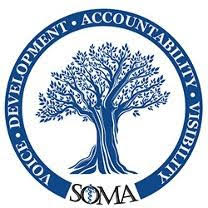› Forums › Spring 2021 Resolution Forum › Resolution: S-21-22: REMOVAL OF RACE FROM eGRF CALCULATIONS
- This topic has 0 replies, 1 voice, and was last updated 3 years, 2 months ago by
Valerie Lile.
-
AuthorPosts
-
-
February 18, 2021 at 12:21 pm #3529
Valerie Lile
KeymasterWHEREAS, Black patients have higher incidence of hypertension and diabetes, which are key risk factors of kidney disease5; and
WHEREAS, The burden of end-stage renal disease (ESRD) is disproportionately higher for blacks and Hispanics compared with whites in the United States2; now, therefore, be it
WHEREAS, estimated glomerular filtration rate (eGFR) is estimated based on age, sex, race, and serum creatinine. eGFR is one of the main diagnostic methods in diagnosing kidney disease, as well as determining whether a patient requires dialysis or a kidney transplant3.
WHEREAS, the original 1999 study that introduced race-adjusted algorithms for estimated GFR included a sample size of 1304 white individuals and 197 Black people and found that Black individuals in the study had higher kidney filtration rates and attributed this higher GFR to “on average black persons having higher muscle mass than white persons”. This assertion of black individuals having higher muscle mass was not measured in the study but instead justified by citing three different studies: one that found black children had less body fat than white children, a second study that found black individuals had higher total body-potassium than white individuals when matched for sex and age, and a third study of 30 black people and 30 white people that found racial variation in creatinine kinase was independent of lean body mass4.
WHEREAS, muscle wasting is found in patients with chronic kidney disease, especially those with ESRD on dialysis. This finding can be due to malnutrition, disability, depression, infections, as well as socio-economic status. In the original study, no official methods were used to measure muscle mass7.
WHEREAS, race adjustments that yield higher estimates of kidney function in black patients might delay their referral for specialist care or transplantation and lead to worse out- comes, while black people already have higher rates of end-stage kidney disease and death due to kidney failure than the overall population8.
WHEREAS, black patients in the United States have longer wait times for kidney transplants than nonblack patients, which could be the result of inaccurate eGFR calculations8.
WHEREAS, one study found that among their 2225 black patients who had race removed from the eGFR calculations, 33.4% of patients would be recategorized to more severe stages of CKD1.
WHEREAS, this same study found that 3.1% of black participants would have their eGFR reassigned to ≤ 20 ml/min/1.73 m2. This new value would assist them in meeting the criteria for kidney transplant. However, after this race multiplier was removed, 0% as opposed to 3.1% would be referred, evaluated or waitlisted for kidney transplant1.
WHEREAS, the National Kidney Foundation and the American Society of Nephrology, the largest organizations representing kidney patients and professionals, have developed a task force on “Reassessing the Inclusion of Race in Diagnosing Kidney Diseases” to ensure that the equation to estimate GFR provides an unbiased assessment of kidney function6; now, therefore, be it
RESOLVED, that the AOA supports removal of race from eGFR calculations.
References
- CM. Nzerue, H., DC. Crews, R., DC. Crews, Y., AR. Sehgal, M., JC. Gander, X., TS. Purnell, X., . . . VL. Bonham, S. (1970, January 01). Examining the Potential Impact of Race Multiplier Utilization in Estimated Glomerular Filtration Rate Calculation on African-American Care Outcomes. Retrieved January 31, 2021, from https://link.springer.com/article/10.1007/s11606-020-06280-5
- Crews, D., Liu, Y., & Boulware, L. (2014, May). Disparities in the burden, outcomes, and care of chronic kidney disease. Retrieved January 31, 2021, from https://www.ncbi.nlm.nih.gov/pmc/articles/PMC4126677/
- Estimating Glomerular Filtration Rate. (n.d.). Retrieved January 31, 2021, from https://www.niddk.nih.gov/health-information/professionals/clinical-tools-patient-management/kidney-disease/laboratory-evaluation/glomerular-filtration-rate/estimating
- Grubbs, V. (2020, August 07). Precision in GFR Reporting. Retrieved January 31, 2021, from https://cjasn.asnjournals.org/content/15/8/1201.long
- Martins, D., Agodoa, L., & Norris, K. (2012, October). Hypertensive chronic kidney disease in African Americans: Strategies for improving care. Retrieved January 31, 2021, from https://www.ncbi.nlm.nih.gov/pmc/articles/PMC3607200/
- Public Forums to Provide Input on Reassessing Race Inclusion in Diagnosing Kidney Diseases. (2021, January 15). Retrieved January 31, 2021, from https://www.kidney.org/news/public-forums-announced-to-provide-input-to-joint-task-force-to-reassess-inclusion-race
- Sabatino, A., D’Alessandro, C., Regolisti, G., Mario, F., Guglielmi, G., Bazzocchi, A., & Fiaccadori, E. (2020, March 31). Muscle mass assessment in renal disease: The role of imaging techniques. Retrieved January 31, 2021, from https://qims.amegroups.com/article/view/39277/html
- Vyas, D. A., MD, Einstein, L. G., MD, & Jones, D. S., MD, PhD. (2020, August 27). Hidden in Plain Sight — Reconsidering the Use of Race Correction in Clinical Algorithms (1172459017 879009413 D. Melina PhD, Ed.). Retrieved January 31, 2021, from https://www.nejm.org/doi/pdf/10.1056/NEJMms2004740
Submitted by:
Alaa Alghalayini OMS III- Kentucky College of Osteopathic Medicine
Julie Alvarez OMS II- Kentucky College of Osteopathic Medicine
Mohamed Hashem OMS I- Kentucky College of Osteopathic Medicine
Batoul Sadek OMS II- Kentucky College of Osteopathic Medicine
Lyudmyla Shymkiv OMS II- Kentucky College of Osteopathic MedicineAction Taken:
Date:
Effective Time Period:
-
-
AuthorPosts
- The forum ‘Spring 2021 Resolution Forum’ is closed to new topics and replies.
